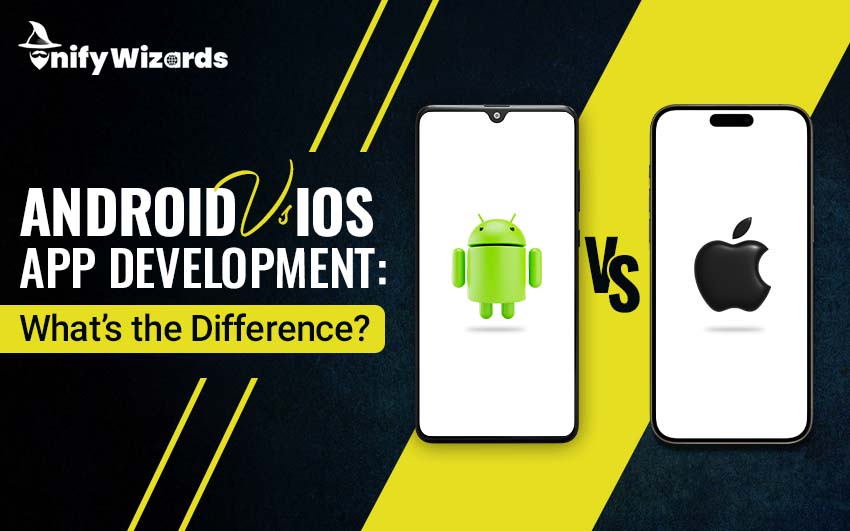How a CMS Can Transform Your Website Management Experience
Most people don’t realize how much energy they waste just by maintaining a website.

In This Digital Age Many people use at least one mobile app in their daily routine. Let's break it down: when we wake up, we switch off our alarm or check the weather. As the day goes by, we scroll through social media, book cabs, order food, and shop online.
These apps are developed to make our activities easier and achieve most of our daily goals. But here’s the interesting part: behind every app is a mobile operating system, which can be Android or iOS. Because of this fact, many people are often confused and want to know what sets each software apart.
In this blog, Unify Wizards break down the answer in a simple form without drowning you with a lot of tech terminology.
iOS app development is the process of creating applications that run on Apple devices, such as the iPhone and iPad. These apps are built using special tools and languages designed by Apple.
Using iOS for mobile app development gives you access to constant updates, a large user base, and high compatibility with Apple devices. It also provides strong security and privacy, but developers must carefully follow Apple’s strict guidelines.
Android app development is the process of creating applications that run on Google’s Android operating system. These apps power devices like Samsung, Google Pixel, OnePlus, and more.
Android apps are popular due to their flexibility and wide device compatibility. Developers have more freedom to customize apps, but they also face challenges since Android apps must work across many devices with different screen sizes and performance levels.
iOS and Android app development are unique in their functionality, design, and programming languages. While both differ greatly, they are equally essential in today’s digital age.
The choice depends on your app goals and user base. In fact, many businesses now develop apps for both operating systems to reach every type of user.
Unify Wizards is a software development company that combines creativity and advanced technology to offer digital solutions. Our goal is to use the best software to help brands connect with their audiences and grow their businesses.
Most people don’t realize how much energy they waste just by maintaining a website.
Custom CMS Development services in London designed to remove operational friction, improve performan...
Every e-commerce founder learns this the hard way; a website isn’t just a storefront. It’s the heart...
We live in an always-on, always-available world, where a customer’s first impression of your busines...